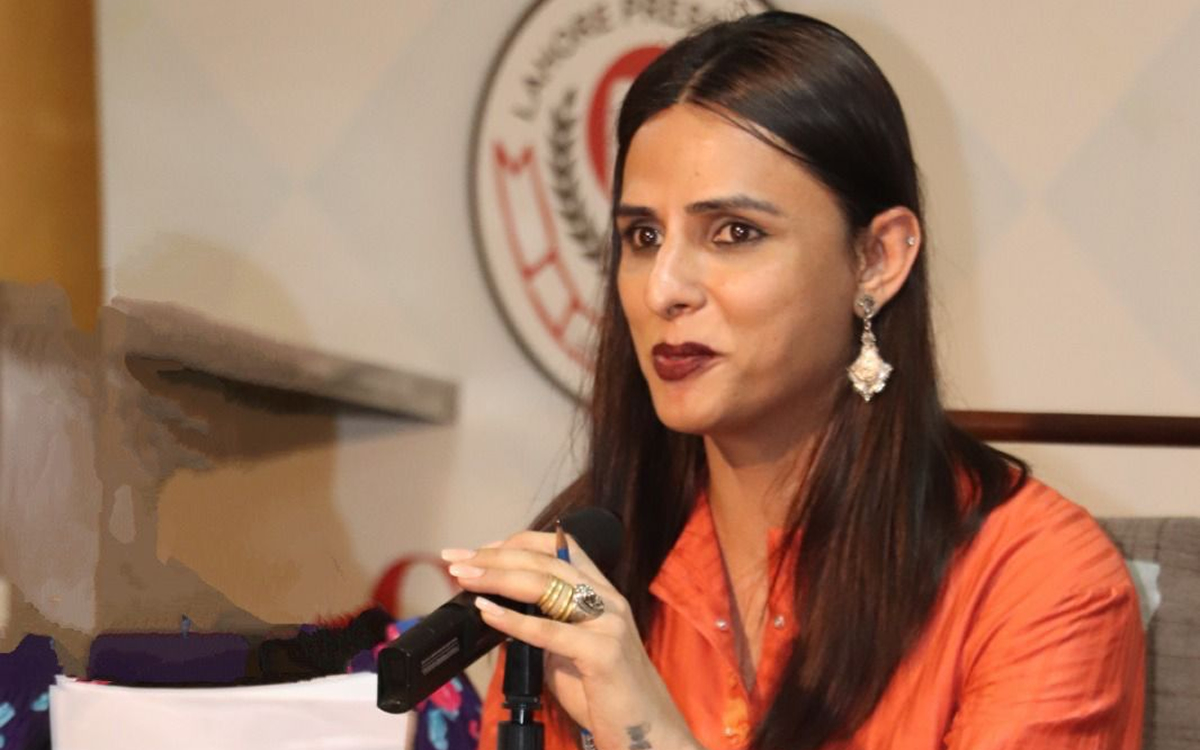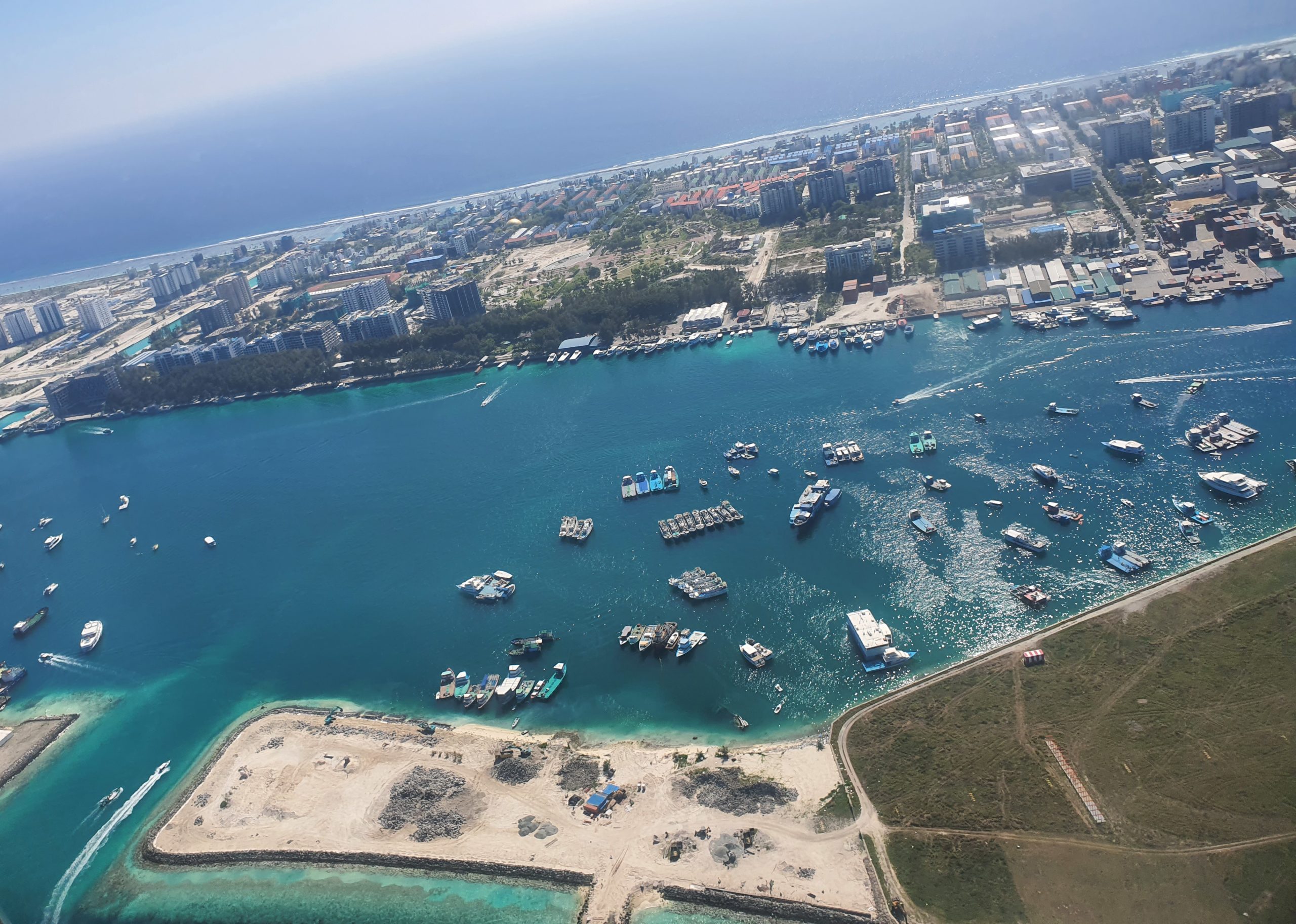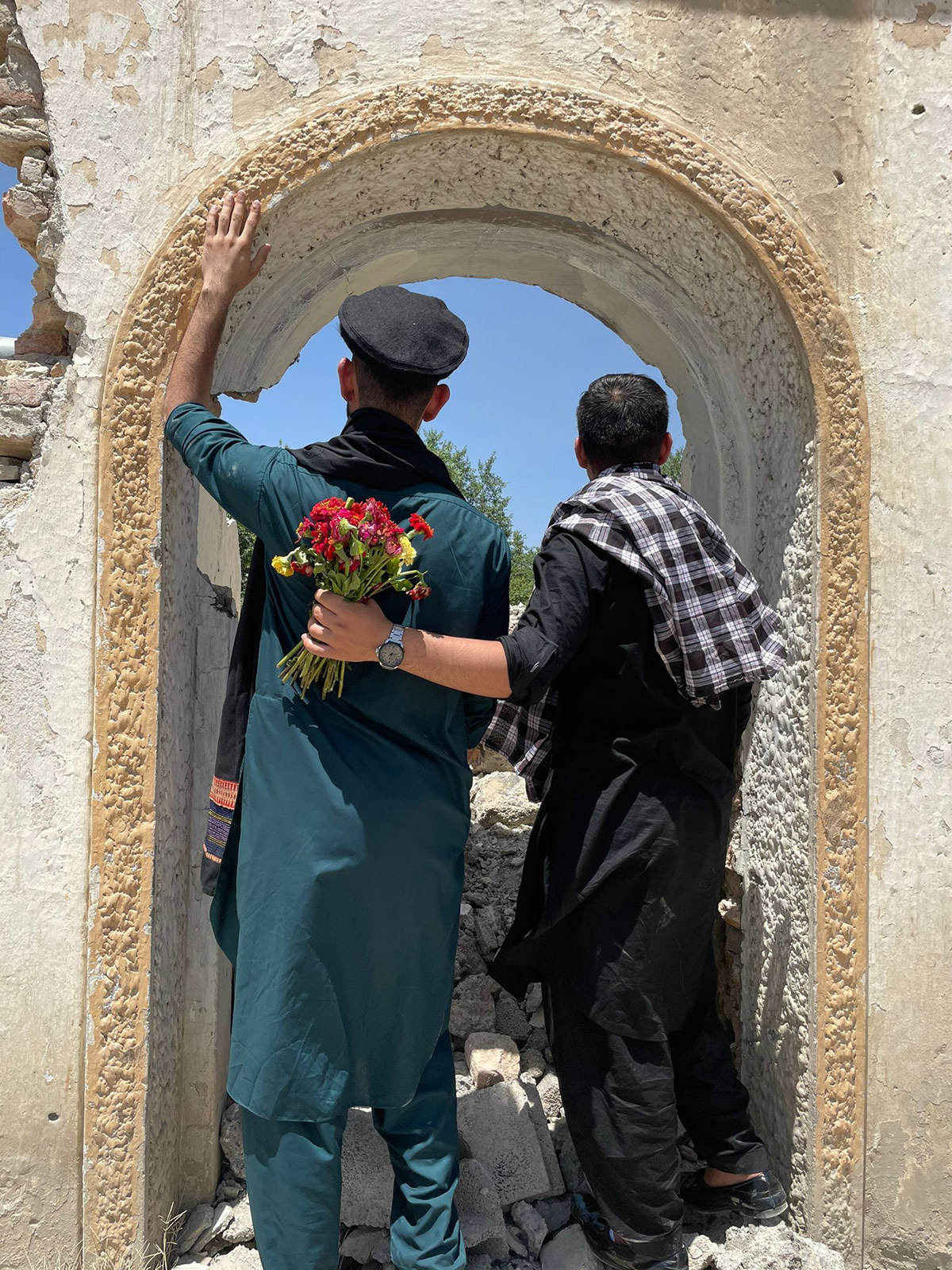Asia
Pakistan resumes issuing ID cards to transgender people
Federal Shariat Court in June ruled against trans rights law

Pakistani authorities have resumed the registration of transgender people and issuing identity cards to them after the Supreme Court’s Sharia Appellate Bench on Sept. 25 ruled on the issue.
An Islamic court on June 13 ordered all data acquisition units to halt the registration of trans people and to issue identity cards only to males or females.
The Supreme Court in 2009 extended civil rights to the trans community. Pakistani MPs in 2018 passed a historic law, the Transgender Persons (Protection of Rights) Act, that guaranteed all the rights available for all citizens to trans people, and prohibited any discrimination based on gender identity.
Jamiat-e-Islami, Jamiat Ulema-e-Islam and Tehreek Labbaik Pakistan and several other Pakistani religious political parties in 2022 raised objections to the law, stating it was un-Islamic.
The Federal Shariat Court in May struck down three sections of the Transgender Persons (Protection of Rights) Act and said Islamic teachings do not allow anyone to change their gender at their will. The court also said gender assigned at birth shall remain intact.
The Islamic court’s June 13 verdict prohibited any new registration for an identity card with an X gender marker or update an older one. The National Database and Registration Authority after the ruling issued that halted the registration of trans people. Individuals in Pakistan need ID cards to open bank accounts, seek legal aid, report a crime to the police, ask for medical help and receive a passport.
NADRA is an independent agency that regulates the government database and registration of sensitive information of citizens. The Federal Shariat Court is a constitutional Islamic court that scrutinizes and determines if laws made in Parliament comply with Sharia laws.
Nayyab Ali, a trans rights activist in Pakistan, during a telephone interview with the Washington Blade said the court’s voting bloc is based on religious elements. She also said right-wing political parties target trans Pakistanis when they do not get publicity.
“Right-wing political parties picked up the transgender issues in Parliament, and started hate speeches on transgender laws,” said Ali. “There is also a divide in the transgender community in Pakistan. Some transgender factions also support right-wing political parties to strengthen their agenda. People inside the government came from the grassroots level of society. Society has an extreme level of phobia and stigma for the transgender population, so when they come to power, they make policies that are against the transgender community.”
Ali told the Blade that former Prime Minister Imran Khan introduced an “Islamic utopia” in Pakistan and implemented an Islamization policy in his day-to-day politics, which created more hatred against trans community and affected society at large.
Ali on X, formerly known as Twitter, praised the decision that allowed the resumption of issuing ID cards to trans people. Documents the Blade obtained indicate she is one of those who challenged the Federal Shariat Court’s decision.
Kami Sid, a trans activist and executive director of Sub Rang Society, a Pakistan-based LGBTQ rights organization, said the community is happy and quite hopeful for a better future.
“First we as a community were very much worried about the Federal Shariat Court’s decision,” said Sid. “But after several advocacy and meetings we are quite hopeful for the fight against the Federal Shariat Court decision, and now quite relaxed as a transgender activist, I must say the community is happy.”
Kami, like Ali, also challenged the Federal Shariat Court’s decision.
Kami told the Blade conservative parties over the last few years have become more willing to promote an agenda that opposes rights for women, children and trans people.
“Transgender rights are human rights,” said Kami. “That is why the previous government refrained from commenting on the Shariah Court ruling out of fear of the right-wing parties and because transgender people are not a top priority.”
Foreign Minister Jalil Abbas Jilani attended the annual UPR meeting in Geneva in January and received approximately 354 human rights-specific recommendations.
Iside Over, an online news website, reports Pakistan may not get an extension over the European Union’s Preferential Trade Arrangement over its failure to improve its human rights record, among other reasons. Kami told the Blade the Generalized System of Preference, or GSP, from the EU has put pressure on the Pakistani government to address human rights-specific issues.
Ankush Kumar is a reporter who has covered many stories for Washington and Los Angeles Blades from Iran, India and Singapore. He recently reported for the Daily Beast. He can be reached at [email protected]. He is on Twitter at @mohitkopinion.
Asia
Maldives activists say new president won’t bring LGBTQ rights to country
Island nation is a popular tourist destination

Maldives, a Southeast Asian country that is a popular tourist destination, on Sept. 30 elected a new president.
Doctor Mohamed Muizzu, leader of the Progressive Party of Maldives and the president-elect, secured 54 percent of the total votes. He defeated incumbent President Ibrahim Mohamed Solih of the Maldivian Democratic Party.
Maldives does not offer any rights to the LGBTQ community.
Consensual same-sex sexual activities are prohibited in the country under the Penal Code 2014. Same-sex couples can face up to eight years in prison and 100 lashes (for both men and women.) The penal code works under the Islamic laws that criminalize same-sex relationships in the country.
Solih in 2019 started to work on human rights concerns and LGBTQ issues in the country, but the previous government abandoned the work after Islamic extremists pressured them. Solih did nothing to prevent extremist groups from attacking the country’s democratic institutions.
“I believe for ordinary liberals it would be safer with the new government because when the Progressive Party of Maldives ruled before, they did not get personal with activists who were not connected to the opposition. They were busy fighting with each other,” said Ulfa M. Fahmee, a humanist creator and LGBTQ rights activist. “Now the ruling party wants international rights groups to see they value democratic values, so they don’t openly arrest opposition activists, instead they attacked those viewed as promoting liberal values.”
“(The) new president is already focused on bringing economic equality unlike previous government who sent islanders to pray for rain when the poor ran out of stored rainwater in the islands making Maldivians believe they have to sacrifice LGBTQ and irreligious for God to get necessities instead of asking from government,” added Fahmee.
Fahmee was forced to flee Maldives because of safety concerns after state-sponsored news outlets accused her of blasphemy.
She said the Maldivian Democratic Party ran a hate campaign against her while the opposition party was protesting against government officials who were caught doing a blasphemous report.
Fahmee told the Washington Blade that Maldivian media is not allowed to post pictures until a conviction is secured, but the press published her pictures while she was still under investigation, putting her in danger of being harmed by extremists. With pain and anger in her words, Fahmee told the Blade that local police still have not returned any of her and her family’s confiscated electronics.
Fahmee is currently living in exile.
“We don’t have an openly LGBTQ community in Maldives, but the current govt enjoyed inciting hate and violence against ordinary liberals who were seen as part of LGBTQ,” said Fahmee. “Whenever privileged elites were accused of any un-Islamic activity, (the) MDP government did hate campaigns against ordinary liberals and jailed many people while at the same time sending human rights fraud reports to international rights organizations blaming Islamists for the hate spreading. Islamists are usually after the government officials so govt tries to divert hate targeted at them by encouraging more state sponsored hate against liberals.”
LGBTQ activists have faced several challenges in the Maldives, including disappearances and death.
Radical Islamic extremists in June 2012 killed blogger, LGBTQ activist and journalist Ismail Khilath Rasheed. Authorities did not investigate the murder.
According to a report published by The Edition, a local Maldivian media outlet, former President Mohamed Nasheed and his newly formed party will be part of the incoming government and will take oath on Nov. 17 with Muizzu.
“There is going to be no change as a consequence of Dr. Mohamed Muizzu being president,” said Shakyl Ahmed, an LGBTQ activist. “Some say that it will get worse because ‘salaf’ (a group of sheikhs) is on the new president’s side, but the new president definitely won’t make things better for us.”
Ahmed told the Blade he is not hopeful about the new government. He said that the new president doesn’t change the lives of the LGBTQ community in the country.
“Most LGBT people in Maldives are Muslim, so most of them don’t support gay rights in Maldives, even if they are gay,” said Ahmed. “However, they do engage in sexual acts with the same sex in secret. There are a few of us who support gay rights and we are trying to progressively change people’s minds.”
Kit Died, another LGBTQ activist, told the Blade the president-elect will make the situation worse for the LGBTQ community in Maldives. Died added he is known to have connections with extremist factions.
“We have no support from the government at all — our existence itself is a crime — so all crimes against queer folk in this country get ignored,” said Kit. “Queer people get blackmailed, robbed, and sexually assaulted regularly here with no investigation or police report.”
“The Anti-LGBTQIA+ narrative in Maldives is upheld by the constitution,” added Kit. “The Maldives constitution is one of the few places in the world that mandates all its citizens to be Sunni Muslims. This creates a paradox for citizens who were born into the religion and want to leave or happen to be queer. There’s no space for queerness in the Maldives’ specific variety of Islam, which is stricter than most in practice thanks to the tiny population that is concentrated in very small cities.”
Ankush Kumar is a reporter who has covered many stories for Washington and Los Angeles Blades from Iran, India and Singapore. He recently reported for the Daily Beast. He can be reached at [email protected]. He is on Twitter at @mohitkopinion.
Asia
UN human rights experts condemn Taliban over treatment of LGBTQ Afghans
Extremist group regained control of country on Aug. 15, 2021

United Nations human rights experts on Monday sharply criticized the Taliban over its treatment of LGBTQ and intersex people and other groups in Afghanistan.
“Two years ago, the Taliban seized power in Afghanistan. Since then, the policies they have imposed on the Afghan population have resulted in a continuous, systematic and shocking rescinding of a multitude of human rights, including the rights to education, work and freedoms of expression, assembly and association. Consistent credible reports of summary executions and acts tantamount to enforced disappearances, widespread arbitrary detention, torture, and ill treatment, as well as arbitrary displacement have caused increased concern,” reads a statement that Victor Madrigal-Borloz, the independent U.N. expert on LGBTQ and intersex issues, and others signed. “The hardest hit are women and girls, ethnic, religious and other minorities, people with disabilities, displaced persons, LGBTQ+ persons, human rights defenders and other civil society actors, journalists, artists, educators and former government and security officials.”
“Despite reassurances by the Taliban de facto authorities that any restrictions, particularly in terms of access to education would be temporary, the facts on the ground have demonstrated an accelerated, systematic and all engulfing system of segregation, marginalization and persecution,” the statement further notes.
The Taliban regained control of Afghanistan on Aug. 15, 2021. The last American forces withdrew from the country 15 days later.
The State Department in its 2022 human rights report notes the Taliban “criminalizes consensual same-sex sexual activity, and representatives routinely enforced this position through violence, intimidation, harassment and targeted killings.”
“Under sharia, conviction of same-sex sexual conduct is punishable by death, flogging or imprisonment,” reads the report. “Individual Taliban members made public statements reiterating that their interpretation of sharia includes the death penalty for homosexuality.”
The report further notes the Taliban “takeover of the country increased fears of repression and violence among LGBTQI+ persons, with many individuals going into hiding to avoid being captured by the Taliban. Many fled the country after August 2021. LGBTQI+ persons faced increased threats, attacks, sexual assaults, and discrimination from Taliban members, strangers, neighbors and family members.”
Outright International and Human Rights Watch in January 2022 released a report that includes interviews with LGBTQ and intersex Afghans who the Taliban have targeted. They include a 20 year-old man who said Taliban members “loaded him into a car” at a checkpoint and “took him to another location where four men whipped and then gang raped him over the course of eight hours.” The report also notes the Taliban beat a transgender woman in Kabul, the Afghan capital, and “shaved her eyebrows with a razor” before they “dumped her on the street in men’s clothes and without a cellphone.”
Asia
Transgender Pakistanis face uncertain future
Khyber province clerics ban trans people from dancing at weddings

The transgender community’s history on the Indian subcontinent spans thousands of years.
The community has historically thrived, but discriminatory colonial laws left it isolated and trans people faced violence in the subcontinent. Pakistan is no exception.
A group of 26 tribal clerics in Pakistan’s Khyber province on July 7 banned trans people from dancing and playing music during weddings. They ruled clergy would not perform wedding rituals at any marriages that included dance and music.
The clerics in their decree said they will not perform the last rites of an entire family if any one of them disobeys the decision.
The Washington Blade reached out to Prime Minister Shehbaz Sharif for comment, but his office did not respond.
“They have been doing it for a very long time. In 2015, there were so many cases when trans persons have been killed because of being artists because they were performing, and gender as well. The violence in Khyber province is apparently higher as compared to other provinces. But now other provinces are also replicating,” said Jannat Ali, a Pakistani trans activist and executive director of Track T, a trans rights organization. “Transphobia is increasing in other parts of Pakistan. The government is playing very smartly and being neutral as the current government is a right-wing conservative, and elections are about to come.”
The National Assembly in 2018 passed the Transgender Persons (Protection of Rights) Act, which allows for a trans person to be legally recognized. The law also prohibits any discrimination and harassment based on gender identity.
While talking with the Blade, Ali said Pakistan’s trans community faces a dilemma because it feels as though the British colonial era has returned. She said things were moving in a good direction after 2018, but an anti-trans campaign has begun.
“After Khyber, I think, Punjab (a province in Pakistan) will be the next target,” said Ali.
Violence and attacks on the trans community have increased in Pakistan in recent years.
Marvia Malik, the country’s first trans television anchor, in February was attacked outside her home in Lahore.
She gave a statement to the police and later received threatening calls and messages from unknown numbers. A group of people shot at Malik while she was returning home from a pharmacy at night. She survived.
The Council of Islamic Ideology, a constitutional body that advises the Pakistani government and Parliament on Islamic issues, last year said the Transgender Persons (Protection of Rights) Act 2018 is not in accordance with the Shariah law. The council further stated many of its provisions are not consistent with Islamic ideology, and warned against it.
“I believe that everyone deserves to be respected and treated equally, regardless of their gender identity. Unfortunately, some people feel the need to discriminate against others based on who they are. It’s important for society to stand up against discrimination and promote acceptance and understanding of diverse identities. Everyone has the right to live their life without fear of persecution or discrimination,” said Anusha Tahir Butt, chair of Transgender Empowerment Organization in Pakistan. “It’s possible that this ban could lead to increased violence or discrimination against transgender individuals not only in Khyber province but also in other parts of Pakistan. People need to speak out against this kind of discrimination and work together to create a more accepting and inclusive society. Governments and institutions need to take a stand against discrimination and protect the rights of all individuals, regardless of their gender identity. Education and awareness-raising can also play a role in promoting acceptance and understanding of diverse identities.”
Butt also said it’s unfortunate that discrimination against trans people continues to take place in Pakistan, despite the country’s nondiscrimination laws. While talking with the Blade, she suggested leaders and politicians need to speak out against such discrimination and work to create a more inclusive society. Butt also said silence on this issue can be seen as condoning discrimination and that is not acceptable.
“This is such an alarming situation for the transgender community because the transgender community is already facing threats in society. In recent times, there was objection over the Trans bill (the Transgender Persons (Protection of Rights) Act 2018) — a bill, which was giving fundamental rights to the community. Now, such a threat to the transgender community will only get worse, Khyber Pakhtunkhwa is the province where we receive news regarding violence in the community,” said Veengas Yasmeen, founder editor and a journalist of Rise News, a digital news organization in Pakistan.
“In the province, clerics are in the habit of issuing fatwas in 2021 and 2022 where they barred women from going to the market, women should be accompanied by a male companion,” added Yasmeen. “I believe that this is not limited to the Khyber Pakhtunkhwa against the trans community, but it may lead to other provinces. If conservatives bar transgender persons from joining events, then how can they survive because the government does not offer them sufficient jobs? Unfortunately, the Pakistan state is as silent as a grave over the issue, which is also strengthening mullahs. If someone is thinking that such a ban is only on the transgender community, they should not forget that conservatives, one day, will move toward you and issue the fatwa against you. I wonder, in the 21st century, some people are afraid of music and dance, both are a form of peace and love. If you are removing peace and love from your society, you are creating a society without souls.”
Pakistan’s religious court in May struck down key parts of the Transgender Persons (Protection of Rights) Act 2018. The court had said many of its provisions are against Islamic ideology.
“This is indeed sad and distressing on so many levels. The reversal of the Transgender Persons (Protection of Rights) Act of 2018 has exposed Pakistan’s transgender population, especially transgender women, to increased violence and discrimination,” said Rikki Nathanson, senior advisor for OutRight International’s Global Trans Program. “We recognize that cultures and societies have varying beliefs and practices. In this case, the ban imposed by the clerics reflects their interpretation of religious or cultural norms. It is distressing to learn about the growing violence experienced by transgender individuals in Pakistan, particularly after the recent repeal of the Transgender Persons (Protection of Rights) Act of 2018.”
“Our partners in Pakistan have informed us about the heightened vulnerability this community faces in other areas, as these attacks have transitioned from virtual to physical acts of violence, some even resulting in fatalities,” she added. “The severity of these threats has escalated to such an extent that several notable transgender activists have been forced to leave Pakistan and seek asylum elsewhere.”
Nathanson added this trend “is concerning and deserves attention.”
“These issues must be addressed to stop the cycle of marginalization that is affecting not only the mental health but overall well-being and safety of the transgender community of Pakistan,” she said.
Ankush Kumar is a freelance reporter who has covered many stories for Washington and Los Angeles Blades from Iran, India and Singapore. He recently reported for the Daily Beast. He can be reached at mohitk@opiniondaily.news. He is on Twitter at @mohitkopinion.
-

 State Department5 days ago
State Department5 days agoState Department releases annual human rights report
-

 District of Columbia3 days ago
District of Columbia3 days agoCatching up with the asexuals and aromantics of D.C.
-

 South America3 days ago
South America3 days agoArgentina government dismisses transgender public sector employees
-

 Maine4 days ago
Maine4 days agoMaine governor signs transgender, abortion sanctuary bill into law










